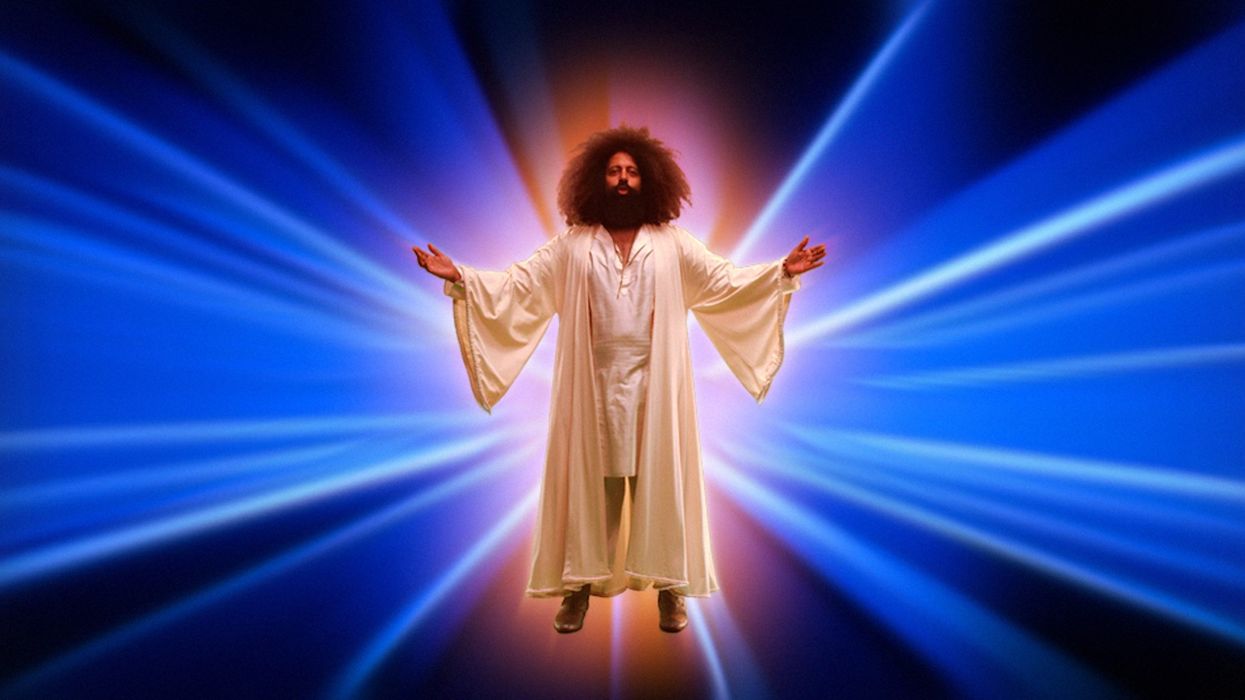Will VR Kill Film?
Seed and Spark Innovators' Brunch panelists say, for one medium, the end could be nigh.

Virtual Reality had an enormous presence at this year’s Sundance Film Festival. People waited in line for over two hours for a chance to experience pieces that generally had running times shorter than five minutes long. It begs the question: does VR spell doom for celluloid? The medium is beginning to attract artists and filmmakers of all different sorts. Reggie Watts' Waves (pictured) was one of many Sundance New Frontiers exhibits showing how much potential there is for experimentation. Some leading experts of the virtual realm weigh in, including Saschka Unseld (Head of the Oculus Story Studio), Jessica Brillhart (Principal VR Filmmaker at Google), Luis Blackaller (Creative Director, Wevr) and James Kaelan (Director of ‘The Visitor’). NFS's own Ryan Koo moderates:
On The Benefits of VR
Saschka Unseld:
"There’s a lot more experimentation in it which I like. The other thing which is incredibly liberating about VR is there is no establishment, there is no existing monetization pipeline, and royalty of VR Filmmakers, and all that gluttony from 100 years of filmmaking.
The nice thing about VR is everything is short form content, and will be for a while, so its way easier to just create it for yourself at home with a really tiny budget. You don’t need a huge budget and theres not many people doing it so you get recognition faster. You can self build a camera you can just use Unity, which is a free tool to do 3D stuff and it's all short form, so it doesn’t take a year to do...
On The Differences in Telling Stories Through A VR Medium
James Kaelan:
With film, composition is your primary language. That goes completely out the window. VR is about an environment and a space. The techniques that you use that the camera used to be the primary vehicle for - controlling what the viewer did, those disappear. You simply cannot direct the viewer to look at anything unless you motivate them through sound, or through light, or through color or through line. In that sense it becomes much more like theater.
Jessica Brillhart:
The nuances of the medium, what it wants to explore, has a lot do with people psychologically being in a space. The idea that you can’t force them to look at something, is something that we need to accept, but then what do we do to premeditate maybe where they might look in a space? It’s a really interesting dance between what a creator would want, and what a viewer will do, or might be inclined to do.
Saschka Unseld:
In cinema we’re trained to forget that we exist while we watch a film, and in VR you’re part of it.
On Who Will Emerge Victorious
Saschka Unseld:
Just to answer the question of the panel, no...Right now, It’s an individual experience which is the opposite of cinema, which I don’t think is a bad thing, I love communal things but I love singular things like reading a book as well, you couldn’t have a festival where everyone sits there and reads a book, especially if there’s just one copy of a book.
Luis Blackaller:
There’s a lot of expectation put into VR. Probably because of the massive adoption of things like the tablet, and before that smartphones, and before that the internet. These are things kind of like television that change the way we access entertainment or culture. And VR has the potential for doing that but we don’t know what’s going to happen. Right now it’s really early. All the headsets that we have are still fairly cumbersome, and the language that we use to tell stories, we’re still trying to figure it out.
Jessica Brillhart:
Maybe the better question is, is cinema going to kill VR? I think there’s a lot of interesting conversation around trying to shove a medium that we’re very used to creating in into a format that’s asking for something very different for us. Is my brain so wired to do this thing that I am actually incapable of really, fully recognizing what this medium wants from me?
Do you think the end of film as we know it will really be coming in our lifetime? Do you want Google Cardboard for yourself? Weigh in on the debate below.
For more, see our complete coverage of the 2016 Sundance Film Festival.
No Film School's video and editorial coverage of the 2016 Sundance Film Festival is sponsored by Blackmagic Design.












